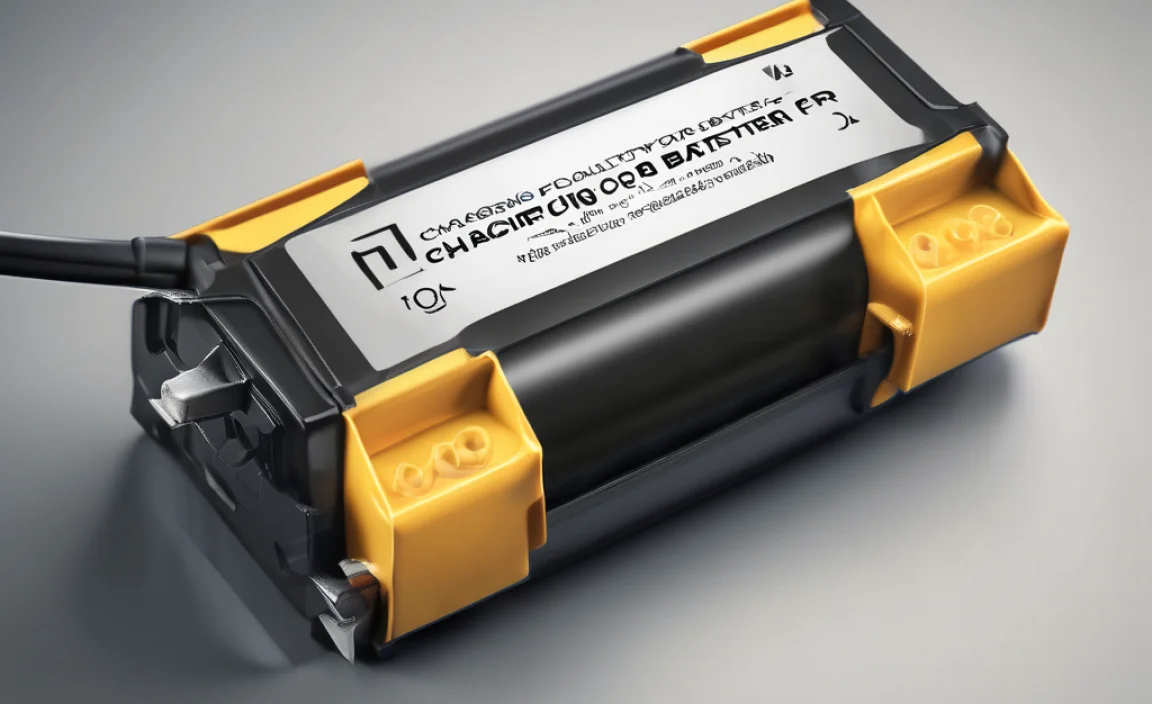Unlocking Peak Performance: Finding the Best Battery Charger Adapter
The best battery charger adapter isn’t just a simple accessory; it’s the crucial link ensuring your batteries receive the optimal power they need to perform at their peak. In a world increasingly powered by rechargeable batteries, from our smartphones and laptops to power tools and electric vehicles, the efficiency and longevity of these energy sources are paramount. A subpar or incompatible adapter can lead to frustratingly slow charging times, premature battery degradation, or even potential safety hazards. Therefore, understanding what makes a “best” adapter and how to identify it is an essential skill for any modern consumer.
The core function of a battery charger adapter, often referred to as a power supply unit or AC-DC converter, is to transform the alternating current (AC) from your wall outlet into the direct current (DC) that your specific battery charger requires. This conversion isn’t a one-size-fits-all process. Different battery chemistries (like Lithium-ion, NiMH, NiCd, Lead-acid) have distinct charging voltage and current requirements. Similarly, different charger designs necessitate specific output characteristics from their power adapters. This is where the importance of choosing the right adapter truly shines.
Understanding the Crucial Specifications of an Adapter for Battery Charger
When you’re on the hunt for an adapter for battery charger, a few key specifications will guide you towards the best choice. Firstly, Voltage (V) is paramount. The adapter’s output voltage must precisely match the input voltage requirement of your battery charger. Too low a voltage, and your charger might not even initiate the charging process. Too high a voltage, and you risk damaging the charger’s internal circuitry or, worse, the battery itself. Always check the label on your original charger’s adapter or consult your device’s manual for the correct voltage.
Secondly, Current (A), or amperage, determines how quickly the charger can deliver power. While it’s generally acceptable for an adapter to have a higher amperage rating than what the charger strictly requires (as the charger will only draw what it needs), using an adapter with insufficient amperage will result in significantly slower charging times. In some cases, it might even cause the adapter to overheat and fail. Conversely, an adapter that’s too powerful in terms of amperage won’t necessarily speed up charging beyond the charger’s capabilities, but it’s important to ensure the charger is designed to handle any surplus.
Thirdly, Wattage (W), which is the product of Voltage and Current (W = V x A), provides an overall measure of the adapter’s power output capacity. It’s a good indicator of the adapter’s overall “strength.” Ensure the adapter’s wattage meets or exceeds the charger’s requirements.
Finally, consider the Connector Type and Polarity. Adapters terminate in various plug types, designed to fit specific charger ports. The physical shape and size of the connector are critical for a secure connection. Equally important is the polarity, which dictates the positive and negative orientation of the power flow. Incorrect polarity can cause immediate and irreversible damage to your charger and battery. Most adapters will have a diagram indicating the center pin as positive or negative, which should match the charger’s input specifications.
Navigating the Market for the Best Battery Charger Adapter
The market offers a diverse range of options when seeking the best battery charger adapter. For specific devices like laptops or camera batteries, manufacturers often provide proprietary adapters. While these are typically the safest bet, they can also be the most expensive. Fortunately, third-party manufacturers have stepped in, offering compatible and often more affordable alternatives. When considering these, look for reputable brands known for their quality and safety certifications (like UL, CE, FCC).
Universal adapters are another popular choice, designed to work with a variety of devices and battery types. These often come with interchangeable tips to accommodate different connector sizes and configurations. While convenient, it’s crucial to double-check that the universal adapter’s voltage and amperage settings are correctly adjusted for your specific charger before plugging it in. Misconfiguration can lead to the same problems as using an incompatible adapter.
For those using specialized battery chargers, such as those for power tools or outdoor equipment, you might need to source a replacement directly from the tool manufacturer or a specialized supplier. These adapters are often custom-designed for those specific systems.
Beyond the Specs: Factors for Longevity and Safety
Beyond the technical specifications, several other factors contribute to finding the adapter for battery charger that will truly serve you well. Build Quality is a significant consideration. A well-built adapter will typically feature robust housing, secure cable strain relief, and properly insulated connectors. This not only ensures durability but also contributes to electrical safety.
Safety Features are non-negotiable. Look for adapters with built-in protection against overvoltage, overcurrent, and short circuits. These safeguards prevent damage to your equipment and, more importantly, mitigate fire risks. Reputable brands will prominently display their safety certifications.
Brand Reputation and Reviews can offer valuable insights. Before making a purchase, research the brand and read reviews from other users. This can reveal common issues or highlight exceptional performance that might not be apparent from the specifications alone.
Ultimately, investing a little extra time and effort into finding the best battery charger adapter is a wise decision. It ensures your valuable devices are charged efficiently, prolongs the lifespan of your batteries, and most importantly, keeps you and your home safe from electrical hazards. Don’t let a cheap or incompatible adapter be the bottleneck to your powered lifestyle.


